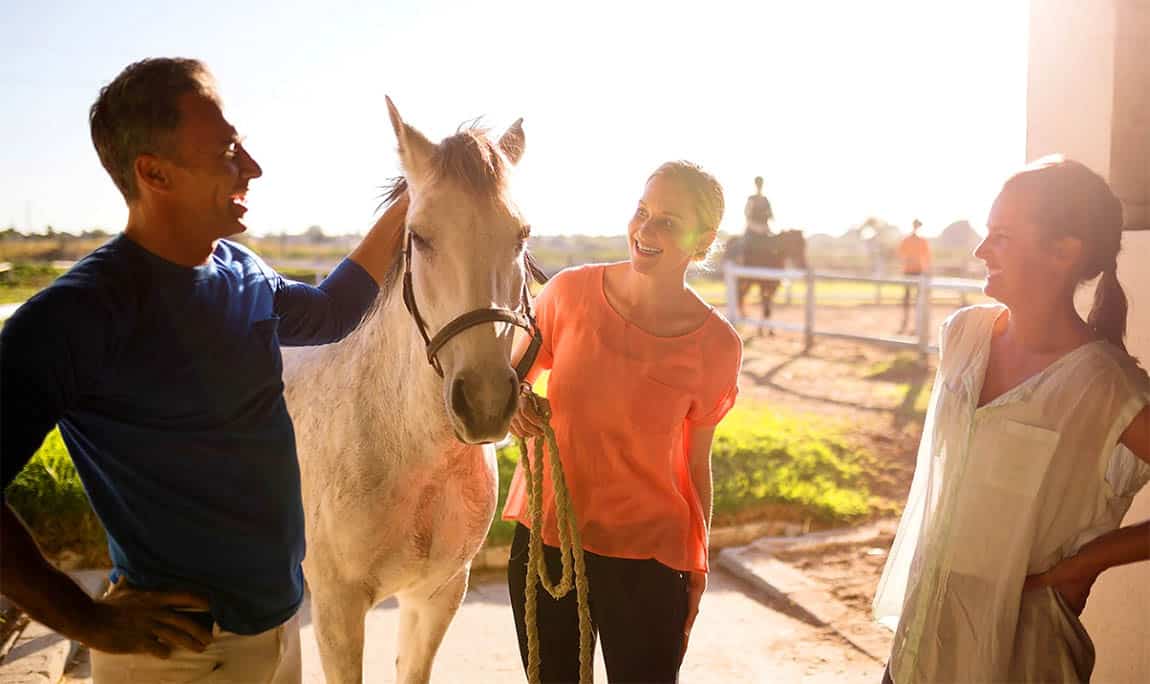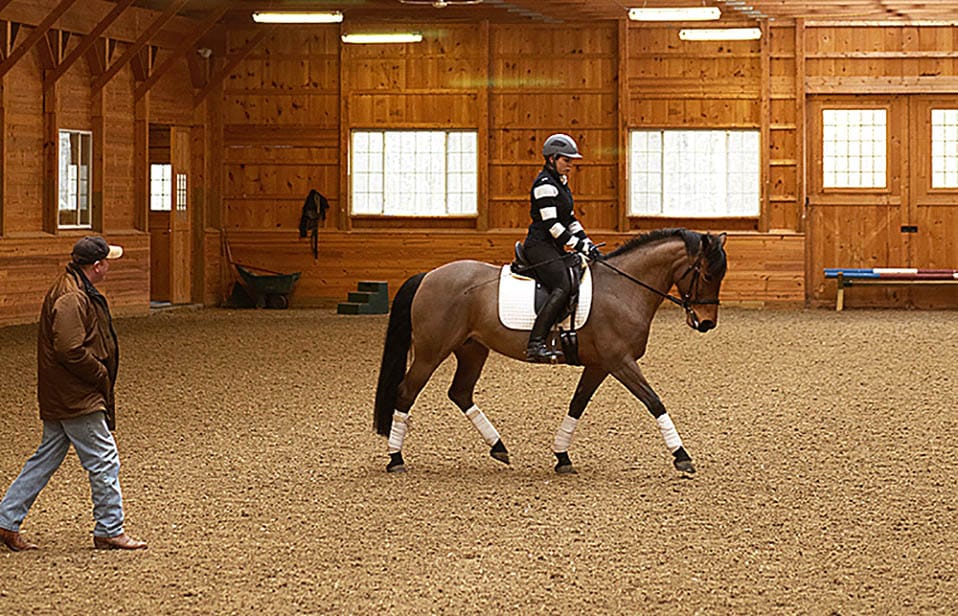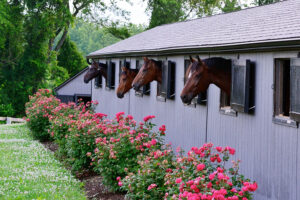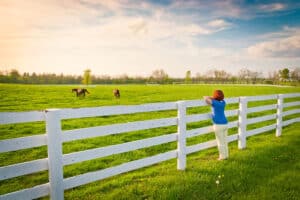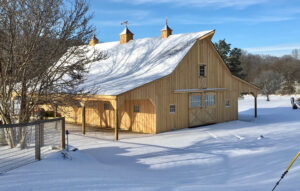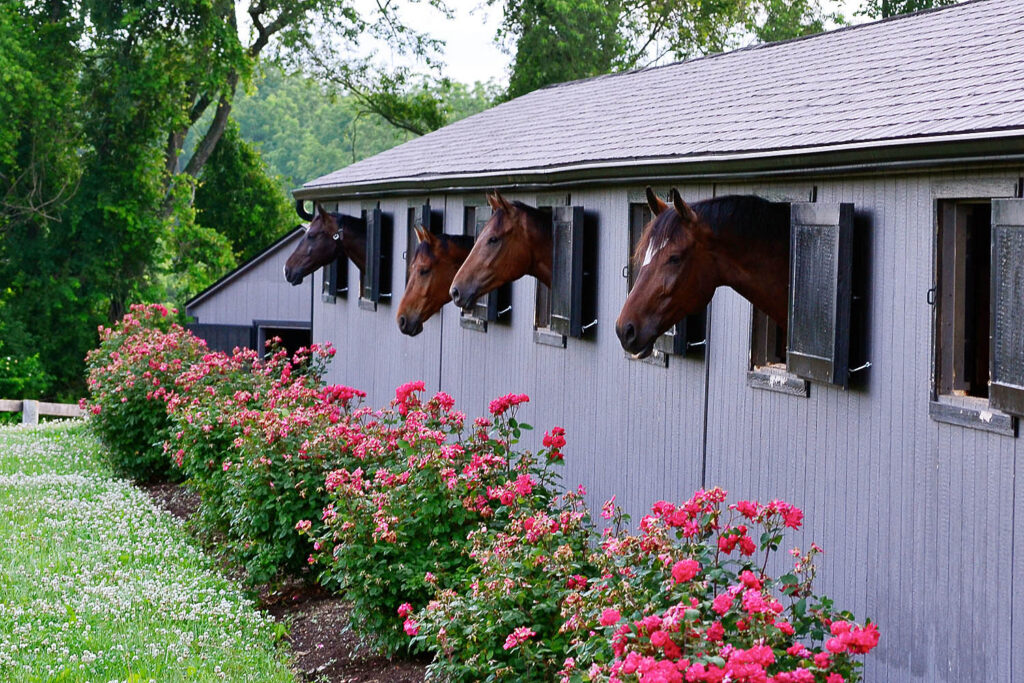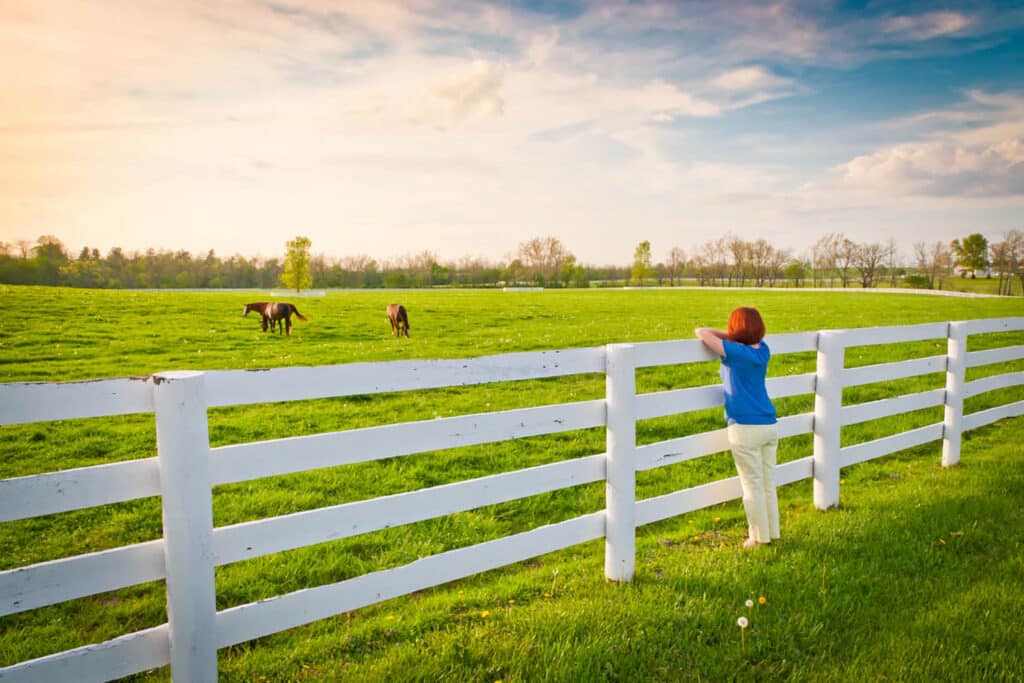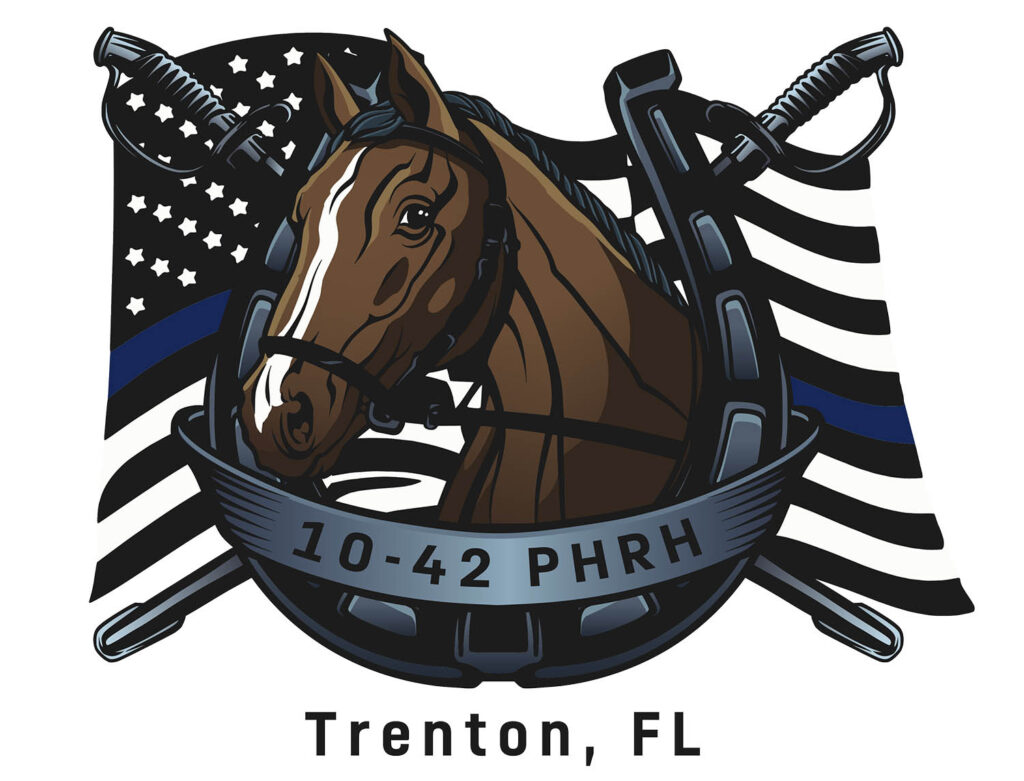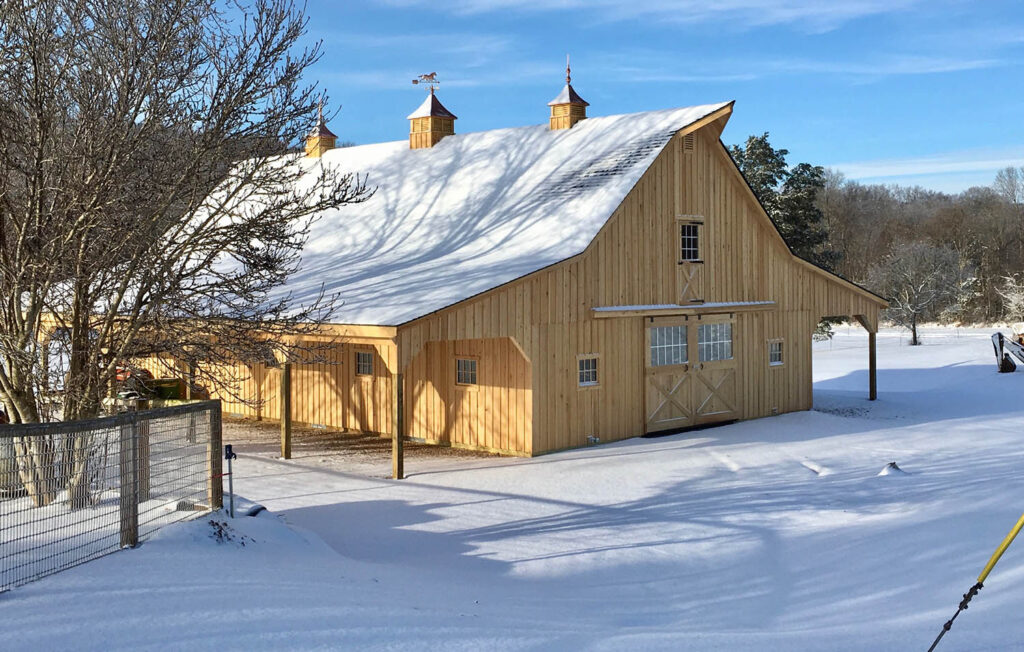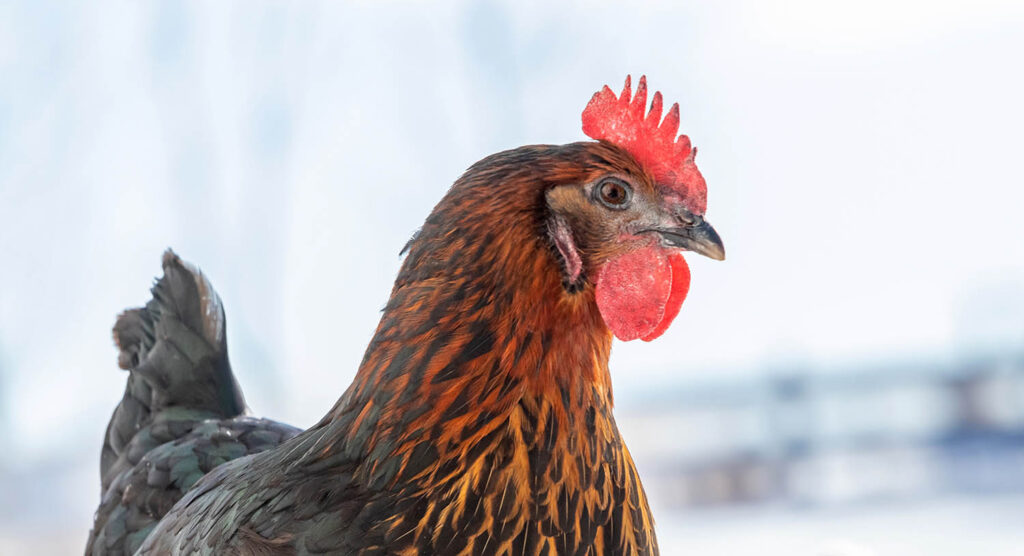Savvy horse folks know that taking on a horse barn lease or offering one on the open market can solve a myriad of problems for both sides of the lease arrangement.
A productive and happy relationship between the lessor (person that owns the property) and lessee (person that wants to take on the lease), is always the goal when leasing begins. Sadly, as time progresses during the arrangement. The initial honeymoon period can quickly deteriorate into upset and discontent. Most of the issues that arise can be avoided if you take the right precautionary steps in the lease arrangement from the beginning.
Leasing out of horse barn can be a great source of additional income. Benefits of leasing can be emotional as well as financial, as the property owner can still vicariously enjoy keeping horses while leaving the hard work and management to someone else. And on the other hand, there are also many good reasons to lease a horse barn.
Reasons To Lease
Horse property owners that age out of keeping horses themselves or running a horse business often find it difficult to let go of their entire property and size down elsewhere. The ongoing maintenance issues that a horse property requires can be a challenge to manage when the infirmities of old age creep up on a person or a temporary medical issue causes a setback in physical or mental abilities. It is sad to see a horse farm neglected or out of use. When left to Mother Nature to manage, barns, fences and pastures quickly deteriorate.
The building of a new horse property can also include a plan to lease out partial space/entire facility to professional trainers. It can also operate as a long- or short-term rental to other interested parties who are amateur horse owners or own animals that also require housing.
The development of a horse property at a location with close proximity to areas of seasonal intense equestrian activity can be a lucrative real asset investment for the property owner. Such a horse facility will offer an attractive option for budget-savvy competitors and their teams to rent as stall space.
These valuable benefits will include; privacy for training; seclusion for veterinary and alternative providers giving resident equine medical attention; restricted access and privacy for visiting students/clients or prospective horse buyers; less stressful environment for the competition horses; less chance for contraction of contagious disease by the performance horse string; more control over time use of facility features such as pasture/training arena; offer viability to bring along horses not competing; and will likely be more affordable than staying on site at showgrounds.
Development of a property as an equestrian facility should be undertaken with a full understanding of the risks of the enterprise. New build modular barns can offer a quick and efficient method to have stalls/stables on site with little ‘hands on’ required during the construction project. The monetary yield from sharing some use of a new facility can be a great way forward to achieving a dream of horse property ownership. Even if it is just for a few years at the beginning to help defray capital outlay costs by leveraging the benefits of the property overall. Consider the trending popularity of Barndominiums as a good example of ways to bring extra income to offset the building costs. Building dual barns can contribute many benefits to the overall business plan success.
For folks seeking to develop their own career in the horse industry, affording the capital outlay involved in purchasing a horse facility may be out of the question, so leasing can provide a useful steppingstone in their career development plans. For some professional horse folks, actual farm ownership is never of interest, as they often like to avoid the expense and stress of property ownership and being tied down to one location.
Whatever reason the horse barn is leased, it is essential that the matter is executed as a business deal. Casual arrangements to lease a horse property that are made on a handshake are not the best idea even between family and friends. Misunderstandings and abuse of privileges can cause inflammatory situations to erupt and friendships and trust to evaporate quickly. When the parameters of the lease are defined in a contract, everyone knows where they stand. A lease is a business arrangement, and as such it should not be undertaken lightly.
Advice from an attorney is always recommended before signing a lease. This article is not intended as legal advice, but here are some topics to consider from each perspective – the lessee and lessor.
Before You Take on A Lease – The Lessee
Consider the following factors and beware of any red flags that you discover in your negotiations:
- Validate that the property is actually owned by the party offering to lease it out. If the barn or facility is already leased and you are sub-leasing, you should require proof that the sub-lease activity is allowed under the existing contract terms.
- Evaluate the current state of the property in person before final signing up on a lease. Run-down properties can offer unsafe conditions for stabling/pasture of horses. Items such as unkempt meadows can harbor noxious weeds; damaged or poor quality/types of fencing can cause horse injuries; missing or inoperable door or fence hardware can be a daily nuisance; poor condition of floor stabling increases bedding costs; dirty stalls may be contaminated with viruses, bacteria or fungi; poor access routes to property limit horse transport equipment and supply delivery size; lack of entry gates and provisions for security can result in losses. A video walk around of the property kept on file at the time of leasing can be helpful in proving compliance with conditional items of the lease.
- Identify who is responsible for any maintenance such as mowing/pasture or fence maintenance; snow plowing; leaf clean-up; property damage caused by horses; property damage caused by visitors or lessee.
- Identify any limits for type of use and timelines for completion of any maintenance tasks.
- Understand the renewal options and termination agreement conditions.
- Do a background check on the lessor to ensure that they have no criminal record and are in good financial standing.
- Ask for references from prior lease tenants as appropriate.
- Detail what access is allowed under the agreement to the lessor or their agents or assigns, and when it is permissible.
- Understand all the terms of the contract including defined, not ambiguous responsibilities being undertaken on both sides and have all details, especially terms of refunds for deposits and possible reasons for subtractions from same.
- Understand any tax implications that you may be subject to with the use of the facility such as charging Sales Tax for services. Insurance requirements/needs should be thoroughly investigated.
Before You Offer a Lease – The Lessor
A clear line of communication between both leasing parties is essential for a successful lease arrangement. Written agreements should be clearly written and definitive in their content to avoid confusion later, and resolution of any issues that occur during the lease should be made in a timely fashion.
- Review all the above-mentioned items applicable to the lessee and address them as they pertain similarly to the lessor. In particular do your due diligence in regard to the financial/creditworthiness of the lessee and their general business ethics/reputation.
- Make sure the lease makes sense from a monetary standpoint as well as an emotional one. Examples: Review tax implications of leasing/renting and complete necessary filings; consult with a qualified accountant experienced in equestrian business to ascertain tax advantages/disadvantages and how best to manage them; review insurance limits/requirements as a lessor and what you should require from a lessee particularly in terms of property damage/liability/errors and omissions and loss of business use insurance.
- Ensure that the property including barn(s)/pastures/arenas/access etc. are well-maintained for safety/security of its prospective users at the outset and take video/photo proof to validate condition of both interior and exterior at the start of rental period.
- Review local building code/zoning property regulations before building/leasing property for commercial purposes.
- Understand all legal requirements of the property owner as a lessor in regard to mortgages/agent and owner access/escrow account provision for deposits held/and eviction procedures.
Keeping It Real
Both lessor and lessee should manage their expectations of the lease arrangement.
The lessor should plan for a realistic vacancy rate and costs for eviction procedures should the latter become necessary.
If you own the horse property and plan to live on the same property alongside your new tenants, be realistic about the disruptive influence that may be caused by granting access to the horse and human traffic that will come along with a lease. A loss of privacy and control over aspects of the property can be hard to accept for the owner who has been used to managing the property in their own manner and style.
The lessee should respect the trust placed in them by the owner to use and enjoy provision of the space. The lessor should avoid micro-managing the property and niggling at the lessee over minor infractions. Both parties should avoid arbitrary complaints and expect to meet in the middle to resolve differences that may arise during the contract period and expect that there will be times when extra money or extra effort is required to make a repair or take on board responsibility when an unexpected incident occurs.


